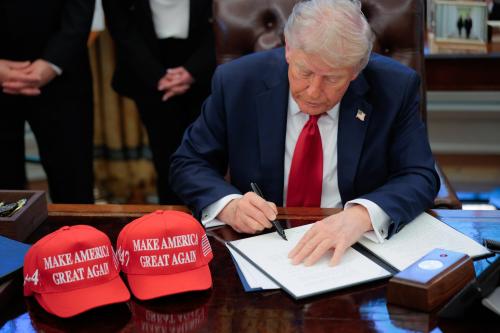When nine thriving Chinese universities banded together late last year to create an elite consortium informally known as China’s Ivy League, the development seemed only natural for an education-loving nation that ardently embraces the view that world-class universities drive economic growth. Today, China is “Exhibit A” in the emergence of a new and increasingly freewheeling global university marketplace.
At the same time, China’s impressive higher education progress has made it a symbol of what some see as the competitive threat posed by rising academic powers around the world. Such worries are unwarranted, but it is perhaps no surprise that they have become commonplace, given the surge of academic activity in China and beyond.
Long known primarily as the world’s largest exporter of students, China is now doing much more to build its human capital at home. In addition to expanding the quantity and quality of its own universities, it is forging partnerships with Western universities that operate programs in China. And it has lured home some academics who left for the West, but who now find appealing opportunities in newly revitalized universities.
Moreover, China is not alone. The yearning to create competitive universities is also vividly on display in Singapore, which seeks to become a world-renowned educational hub and has brought in numerous Western partners, including the Massachusetts Institute of Technology. South Korea, for its part, is creating what amounts to an academic free-trade zone in a 52,000-acre complex near Inchon International airport, playing host to branch campuses of many Western universities.
Nor is academic globalization confined to Asia. The lavishly funded King Abdullah University of Science and Technology opened in Saudi Arabia last year, seeking to join the top ranks of world scholarship via alliances with the likes of Imperial College London and Stanford University. KAUST is also taking advantage of the new global talent market, poaching its first president, Choon Fong Shih, from the National University of Singapore.
In Western Europe, too, governments are eager to resuscitate once-great universities that have descended into mediocrity. Germany and France are engaged in sweeping and controversial efforts to move from a failed egalitarian financing regime to one in which universities compete for significant government funding. This shift, policymakers hope, will bring a small number of institutions up to a world-class standard.
Yet even as competition, university partnerships, global league tables and scholarly mobility spread, academic globalization periodically inspires resistance. In the UK, Ian Gow, the founding president of the University of Nottingham’s Ningbo campus in China, warns in a report issued by the think-tank Agora that China’s partnerships with UK universities are a one-sided effort to benefit from Britain’s science and technology strengths. “British institutions must stop viewing this aggressively ambitious country through rose-tinted spectacles,” he cautions.
In a different but related vein, during his campaign for the presidency, Barack Obama spoke of the dangers to the United States of lagging behind Asian nations in the production of engineering PhDs. Malaysia and India, more overtly restrictionist nations, have placed limits, respectively, on foreign students and foreign university branches.
Some warnings about the rise of foreign educational powers may be rhetorical pretexts for greater funding. But protectionist attitudes and actions have consequences. Robert Dingwall, director of the Institute for Science and Society at the University of Nottingham, has noted that visa barriers are not just a problem for nations that may benefit from the brainpower of foreign students and professors, but for the whole enterprise of international research collaboration. When bureaucracy interferes with academic mobility, “this vision for a world without borders where knowledge flows freely is not matched by the free movement of people”, he said.
The first step towards sustaining university globalization is to understand that, for the West, the growing strengths of overseas universities are an opportunity, not a threat. Similarly, developing nations can only benefit from the exchange of ideas and people brought by global academic competition. Why? Because, as economists often note, knowledge is a public good that many individuals and nations can use. Gains for one country need not harm others – quite the contrary. Thus, a turbocharged university system that produces more well-educated Chinese and more significant research discoveries is good, not bad, for the rest of the world. Left unimpeded, the growing global network of researchers, students and universities, with all the innovation and economic growth it stands to generate, seems sure to become a win-win proposition of ever-greater magnitude for all concerned.
This opinion piece was orginally published in The Times Higher Education
.
The Brookings Institution is committed to quality, independence, and impact.
We are supported by a diverse array of funders. In line with our values and policies, each Brookings publication represents the sole views of its author(s).



Commentary
Op-edGlobalization in Higher Education
April 1, 2010